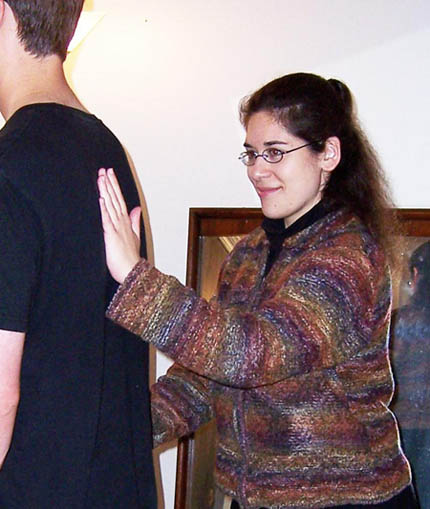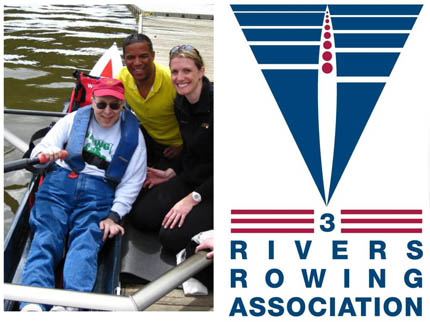Discovering the Possibilities with Visual Strategies
Meeting the Communication, Behavior &
Social Skill Challenges
in Autism Spectrum Disorders
Presenter: Linda Hodgdon, M.ED, CCC-SLP
Friday, October 26, 2012
8:30 a.m. – 4:00 p.m.
Four Points By Sheraton (Pittsburgh North)
910 Sheraton Drive - Mars, PA 16046
This program will demonstrate how and why to expand your use of visual supports. We will explore a number of strategies, including APPS and video, for use at school and home. The use of visual strategies is effective across skill levels, for students from early childhood through adult. Visual strategies work for verbal and nonverbal students. Children with high or low skills benefit from visual supports designed to match their capability. Numerous systems and strategies will be presented that have significantly improved both receptive and expressive communication, social interaction, educational participation and overall behavior.
Communication challenges are a defining feature of Autism Spectrum Disorders and many students with related learning needs. The difficulties with social skills and appropriate behavior that are common in these students are frequently related to the communication difficulties these students experience. Current thinking suggests that communication impairments transcend all aspects of the life of students with autism and Asperger’s Syndrome. While it is common for educational programming to focus on the development of communication skills for these students, that focus tends to be directed toward developing the student’s expressive communication skills. Comparatively little attention is directed toward increasing the student’s ability to understand the communication in his life.For these children, their struggle with communication is far more complicated than just the development of verbal language. Understanding the communication of others, trying to figure out what is happening or not happening, handling changes and transitions, and interpreting cues and signals in the environment can all be areas of difficulty that result in frustration and behavior that is seen as disruptive.
At the same time, research demonstrates that most of these students display a relative strength in visual skills compared to their auditory abilities. Visual strategies capitalize on that strength. Using visual strategies to support communication helps students organize their lives, significantly reduces behavior problems and increases functional communication. This is accomplished in part by developing a system of visual tools and aids to increase comprehension. Schedules, aids to give directions, aids to give information, and aids to establish and communicate rules are some of the tools designed to increase the student’s understanding of what’s happening around him.
Visual tools and supports are not magic. They won’t fix every problem that students have, but they will provide a valuable framework to support their lives. Implementing a system of visual tools and supports significantly reduces various behavior problems and increases effective communication interactions for most students.
The principle of visually supported communication is simple; the impact on the functioning of most students with autism spectrum disorders and others with communication and behavior challenges, however, is profound. While many people use a few visual tools in their homes and education environments, few use this medium of communication support nearly as much as would be beneficial for these students.
Course Description
This program will demonstrate how and why to expand your use of visual supports. We will explore a number of strategies, including APPS and video, for use at school and home. The use of visual strategies is effective across skill levels, for students from early childhood through adult. Visual strategies work for verbal and nonverbal students. Children with high or low skills benefit from visual supports designed to match their capability. Numerous systems and strategies will be presented that have significantly improved both receptive and expressive communication, social interaction, educational participation and overall behavior.
Participant Objectives
At the conclusion of the program, participants should be able to:
• Identify significant factors in student learning and functioning style that affect communication.
• Informally assess the student’s communication strengths and challenges.
• Recognize situations where communication breakdowns can affect the student’s understanding, behavior and participation.
• Use the Guide for Assessing Behavior Situations to identify causes of behavior problems.
• Develop visual tools to support communication, behavior & social skills
• Use specific visual supports, including Apps and video, that have significantly improved student participation and behavior.
Continuing Education Credits
- AOTA OCCUPATIONAL THERAPY
- PA EDUCATORS ACT 48
- SOCIAL WORKERS
- ASHA
- PSYCHOLOGIST
- COUNSELORS
GNC Liberty Mile Event
We’ve been “running around”
doing community autism events,
please run for us!
Runners take your mark!
GNC, Pittsburgh Three Rivers Marathon Launch
1st GNC Liberty Mile Event

August 17 at 7 p.m. on Liberty Avenue
Run from 17th street in the strip to 6th street downtown Pittsburgh
to an after party in Market Square.
Click HERE for more information.
Choose us for your charity running partner or!
Go to http://www.libertymile.org to register.
Select the GNC Live Well Liberty Mile enter
Giving Back Mile Registration -
Access Code: ABOARDMILE2012
and select ABOARD’s Autism Connection of PA
Help support our FREE activites such as:
Adult Autism night at Center for the Arts, Apple Store Apps Workshops, Learn to Row and Paddle with 3 Rivers Rowing, Autism Outdoors, The Outdoor Classroom Day, and 70 support groups in 44 Pennsylvania counties. We have also done county parent trainings, corporate Lunch n Learn sessions, preschool teacher training for 10 counties, and Disability Awareness night at PNC Park. All this plus we answer your calls every single day.
The Social Scoop!
Promoting Social Competence

Presented by
Michelle Lubetsky, M.Ed., BCBA
Saturday, October 6, 2012
9 a.m. – 3 p.m.
Location:
Allegheny Intermediate Unit
475 E. Waterfront Dr.
Homestead, PA 15120
This session will address the needs of individuals with Asperger’s Syndrome, High Functioning Autism, Non-Verbal Learning Disability, or related disorders to evaluate social situations AND apply appropriate social responses. Sample instructional tools will be shared. References include the works of Michelle Garcia Winner, Think Social, and Scott Bellini, Building Social Competence.
learning objectives
- Describe the impact of social competence
- Describe areas of social challenge for individuals with ASD
- Identify sample tools for social skill assessment
- Identify tools and strategies to enhance social problem solving
Continuing Education Credits
PA EDUCATORS ACT 48
The Allegheny Intermediate Unit is recognized by the PA Department of Education to offer continuing education credits ACT 48 under guidelines. A maximum of 4.5 hours of PA EDUCATORS ACT 48 credits will be awarded for the completion of the seminar. A certificate of attendance is provided as well.
SOCIAL WORKERS
For social workers, 4.5 credit hours of continuing education are provided for the completion of the seminar through co-sponsorship of the University of Pittsburgh School of Social Work, a Pennsylvania-approved sponsor of social work continuing education.
Click HERE to Register.
Click HERE to print the brochure.
Sensory Integration & Pain Relief
A Novel Approach for Helping People with Autism Spectrum Disorder (ASD) and their Caregivers
Presented by Caitlin Freeman
Saturday, September 15, 2012
8:30 a.m. – 12:30 p.m.
Location:
ABOARD’s Autism Connection of PA
35 Wilson St. Suite 100
Pittsburgh, PA 15223
Many children and adults with ASD have sensory processing challenges. These individuals often have difficulty taking in information from their senses of touch, movement, balance, hearing, and vision and integrating this information into a meaningful whole. This presentation will explain these sensory issues from the perspective of an adult with ASD and Sensory Processing Disorder (SPD). Participants will learn simple, effective techniques for helping individuals with ASD and SPD achieve sensory integration. Parents, teachers, and therapists who work with individuals with ASD and SPD will benefit from these practical strategies. Individuals with ASD and SPD will also benefit, and are encouraged to attend.
Learning objectives
- Describe how to identify and distinguish the 3 subtypes of SPD.
- Describe practical strategies for treating SPD.
- Describe practical strategies for treating chronic pain.
- Understand that the brain’s misinterpretation of sensory data is responsible for both SPD and chronic pain.
Continuing Education Credits
AOTA OCCUPATIONAL THERAPY
The Advisory Board on Autism and Related Disorders (ABOARD) is an Approved Provider of the American Occupational Therapy Association (AOTA.) A maximum of 0.3 credits (3 contact hours) will be awarded upon successful completion of the seminar. The assignment of AOTA CEUs does not imply endorsement of specific course content, products, or clinical procedures by AOTA.
PA EDUCATORS ACT 48
The Allegheny Intermediate Unit is recognized by the PA Department of Education to offer continuing education credits ACT 48 under guidelines. A maximum of 3 hours of PA EDUCATORS ACT 48 credits will be awarded for the completion of the seminar. A certificate of attendance is provided as well.
SOCIAL WORKERS
For social workers, 3 credit hours of continuing education are provided for the completion of the seminar through co-sponsorship of the University of Pittsburgh School of Social Work, a Pennsylvania-approved sponsor of social work continuing education.
Click HERE to REGISTER!
Click HERE to print a BROCHURE!
Learn to Row & Paddle for Individuals with ASD
Join ABOARD’s Autism Connection and Three Rivers Rowing Association
2:00 – 4:00 p.m.
Three Rivers Rowing Association
90 River Front Drive
(For GPS use 40 River Front Drive)
Millvale, PA 15209
This will be hands on and you will have a chance to visit each station:
Indoor Tanks (rowing & paddling)
Indoor Rowers (rowing & paddling)
Tour of the facility with Q&A time
Dragon Boat Experience on the Water!
Come out and enjoy a day learning about the amazing Adaptive Paddle Program at 3 Rivers Rowing Association. the facility, explore the equipment, try the practice tanks, and sit in a dragon boat in the water.
Event is geared toward people 12 years and older. All functioning levels are welcome along with family members, siblings and support staff.
Individuals can moveat their own pace. 3 Rivers Rowing has a very knowledgeable staff with many experienced volunteers providing 1:1 assistance during regular programming if required.
This event is free but you must register!
Click HERE to register!
Click HERE for a brochure and more information on Adaptive Rowing and Paddling.
If you can not make our private open house. Below are some of the dates/events coming up regarding the summer adaptive program.
Tank Rowing Practices
May 22, 24, 29, 31 6:30-8pm at Millvale
Attending one of these sessions is a good introduction to the program if you are interested in getting involved with rowing. This allows you to get to know the volunteers before getting on the water, get familiar with the rowing motion, and help us figure out what adaptations are required for you.
Programs Start Date: June 2, 2012
Rowing Tues/Thurs 6-8pm & Sun 9-11am
Paddling Sat 11am-1pm
Athletes have the option to attend 1-2 of any of the rowing sessions per week and/or paddle on Saturdays. For rowing, we no longer have a dedicated “competitive,” “visual impairment,” or “mobility impairment” practice. Instead, athletes have the option to attend 1-2 of any of the rowing sessions per week. We are trying to spread out athletes with similar disabilities more so that the dedicated equipment for mobility impaired athletes and the guides for VI athletes can work with multiple athletes during the week.
The cost breakdown is below:
*The cost to row or paddle 1x/wk is $80 if not planning to race, or $90 for racing athletes (1 Day/wk)
*The cost to row twice a week OR row once and paddle once a week is $135 (2 Days/wk)
*The cost to row twice a week AND paddle once a week is $180 (3 Days/wk)
Mark your calendars for the End of Year Banquet on September 1, 2012 from 6-8pm at the Washington’s Landing boathouse.
Water Safety Day: June 10, 2012 11:30-1:30pm @ Sarah Heinz House (1 Heinz House Pgh PA 15212)
During this time, athletes will get a chance to demonstrate their comfort level with the water. This is an important safety aspect of the program.
For liability reasons, TRRA has a swim test (swimming 50yds, tread/float in deep end for 5 minutes, secure PFD while in the water) which athletes involved in all TRRA programs are required to submit before going on the water. If athletes pass the TRRA swim requirements, they do not have to wear life jackets while rowing. For adaptive athletes who have the mobility and strength to attempt the swim test, it is recommended as not wearing a life jacket while rowing allows for more range of motion.
All paddlers and rowers not completing the TRRA swim test for any reason must demonstrate the ability to do a wet exit while wearing a life jacket. A wet exit is when the athlete falls out of a boat into water, while wearing a life jacket, and is able to right themselves so their head/mouth is out of the water. This allows the adaptive program to be available for athletes not able to complete the swim requirements while ensuring their safety should their boat capsize.
Athletes only are required to demonstrate these safety skills once.
Races
Both rowing & paddling have one “home” race and one “away” race this year. This is the first year we will be traveling with paddling!
July 4th – Pittsburgh PA (paddling)
August 18th – Bayada Regatta – Philadelphia PA (rowing)
September 15th – Cleveland OH (paddling)
October 6th – Head of the Ohio – Pittsburgh PA (rowing)
Register for 2012
To register for rowing/paddling you can go online using this link or contact me directly by phone or email (joynix@threeriversrowing.org or 412-231-8772).
http://www.threeriversrowing.org/r-adaptiverowing.html
Contact
Joy Nix
Director of Outreach
Three Rivers Rowing Association
300 Waterfront Dr
Pittsburgh, PA 15222
412-298-2315 (mobile)
412-231-8772 (office)
joynix@threeriversrowing.org
www.threeriversrowing.org
www.thefirstrow.org



Providing Autism Support in Pennsylvania
412-781-4116 800-827-9385 support@AutismOfPA.org